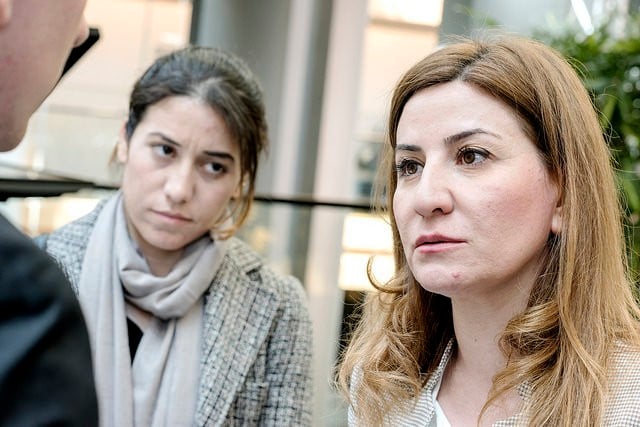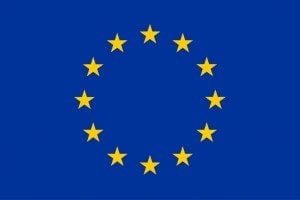
Media, Minorities and Migration: Reporting Effectively on Development, Minorities and Migration
Duration: 10 October 2017 – 31 March 2021
Countries: Bulgaria, Hungary, Poland, Slovakia
Communities: Various
What was this programme about?
This programme sought to raise public awareness about the poverty, migration and exclusion of minority communities in Bulgaria, Hungary, Poland and Slovakia. Through various education opportunities, training schemes, graduate internships, stipends and awards, the programme aimed to strengthen the capacity of journalists and journalism students to report sensitively on those issues, counter the dominant anti-migrant media campaigns and promote positive attitudes towards migrants and refugees across the general public.
Why did we deliver this programme?
The recent flows of migrants and refugees into Europe are shedding new light on the poverty and associated development needs of highly marginalized communities in the global South, many of whom are members of minority and indigenous communities. These flows, together with the dominant media narratives about them, are also triggering increased intolerance towards those arriving on European shores, notably in the newest EU member states.
There is a real need for the EU and its member states to promote justice and equality, and fight poverty. This requires the support and encouragement of the general public. However, in many EU countries, and especially in those targeted in this programme, the public is becoming less supportive of and more sceptical towards the EU’s development policies. A recent Eurobarometer survey found low levels of understanding about key development issues, including the recently adopted Sustainable Development Goals (SDGs). More complex relationships, such as that between minority exclusion and poverty, and the role of development and poverty alleviation in addressing the root causes of migration, are even less understood.
The dangers of low levels of public understanding and sensitivity towards issues of development, migration and minorities are manifold. They can lead to reduced goodwill towards refugees and other migrants living in EU societies, make the general public vulnerable to misinformation and manipulation, harm social cohesion and even lead to violence or unrest. This lack of understanding weakens public support for governments and the EU to play a role in overseas development, undermining pressure on politicians and other decision-makers to support development projects and development-oriented international standards and policies – the very things that are needed to tackle the root causes of today’s high levels of displacement and migration.
What did we do?
- Held an 8-week online course on development, minorities and migration for 200 journalists and journalism students.
- Organized 1-month internships of online training at national media outlets for journalism graduates.
- Held a 7-day face-to-face training and site visits to migrant arrival points in the EU and Africa for 80 journalists and journalism students.
- Offered stipends for investigative reporting projects to most active online trainees.
- Held national and international high-profile roundtables on development journalism for senior media professionals.
- Organized annual awards for outstanding development journalism with a particular focus on the inter-linkages between development, minorities and migration for journalists and journalism students.
- Published media information resources on development, minorities and migration on our website including three global reports on minorities and migration and one best practice report on minority-sensitive development journalism.
- Released two documentary films exploring the link between minorities, poverty and development and published online materials focussing on issues concerning development, minorities and migration to be used by television channels and online media in the four EU target countries.
What did the external evaluation say?
The evaluation has found the results to be overwhelmingly positive and indicative of a well-designed, impactful programme. The programme was found to be highly relevant and implemented in response to a very specific need, due to the restrictive media landscape, negative public perceptions of migration and limited opportunities for journalists to cover related stories in the four target countries.
The programme was found to have success in its different objectives, in particular its engagement of stakeholders across all areas of journalism, including students, universities, editors and media professionals. It has secured formal commitments from universities and partners to raise awareness about migration journalism issues. It produced high quality reportage, and resources on migration and development issues, which continue to be actively used by journalists and newsrooms.
The journalists and stakeholders engaged found the programme highly impactful. Across all activities, participants actively networked with other journalists and local stakeholders, such as NGOs and activists, and MRG was central in facilitating this professional network development.
The programme successfully built the capacity of journalists to report effectively on development issues. Many reported feeling better equipped to challenge the negative public perceptions towards development issues that exist in their home countries. The field trips and stipends were the driving force behind many of the outcomes of the project. Through these activities the students gained critical reporting experience and developed their interview, writing, language and framing skills.
The networks and connections established will also last well beyond the project’s end, enabling journalists to continue to share new opportunities, identify collaborations and engage in debate on development reporting, ethics and other relevant issues. The programme was found to contribute to change in media coverage in EU member states, particularly in the target countries.
Who were our partners?
Our partners were:
- Human Rights League – Slovakia
- Gender Project for Bulgaria – Bulgaria
- Cracow University of Economics – Poland
Who funded this programme?
This programme was funded by:
- The European Union
- The Visegrad Fund
—
Photo: Yazidi woman making a plea for support during a meeting with Parliament President Martin Schulz. Credits: European Parliament
 This content represents the views of Minority Rights Group only and is its sole responsibility. The European Union does not accept any responsibility for use that may be made of the information it contains.
This content represents the views of Minority Rights Group only and is its sole responsibility. The European Union does not accept any responsibility for use that may be made of the information it contains.